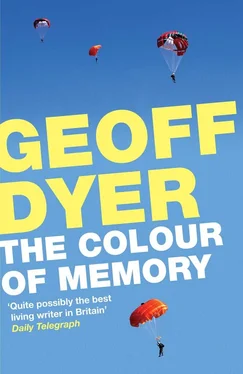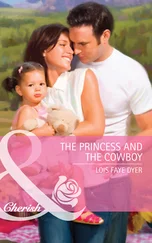The room echoed with the sharp claps, heel stamps and ringing chords of the music. Foomie wiped away some crumbs that had fallen on her book.
The blue floorboards looked liquidy and wet in the orange glow of the electric fire. The panels in the middle of the door had been painted a dark grey and against the background of blue they formed a cross which, for a moment, seemed like the mast of a sinking ship rising from a blue sea — the bars of the electric fire like the bright stripes of a sunset.
We sat and talked by the light of the fire.
Bonfire night: Steranko and I walked back to his house across the park. There was a halo of mist around the moon. A light fog draped the iron skeletons of trees. Fireworks exploded green, red and yellow in the cool mist of the sky. The bandstand loomed stark and empty before us. Paths grew indistinct in the near distance. A rocket arced up into the sky and burst into a bunch of bright petals falling. Some way off to the left there were the shrieking noises and colours of a fun fair. We walked towards it, past the huge pyre that would be at the centre of the firework display later that night. We passed through a thicket of bare trees, indistinct and swampy in the fog. Another rocket asterisked the sky.
On the waste ground outside Steranko’s house some kids had built a big bonfire. His room reeled and heaved with the bright light of flames. The window panes were warm, the sky deep blue. The whole room was rolling with orange light swirling around the various half-finished paintings. Writhing shadows. Heat. A portrait of Foomie — the first one I’d seen — was stained red by the light of the flames. Her eyes were startlingly lifelike in the flickering light. Steranko put on a record and propped himself on the window-sill, hands round his knees, to watch the fire, silhouetted by the flames. Music flooded the room which was full of colours moving, full of the light of burning.
It was a Sunday afternoon, cold and raining, the sort of afternoon when what you most want to do is spend four or five hours in the cinema, eating cake and taking in a double bill of French films with nice photography and plenty of sunshine. On offer was a triple bill of black-and-white Bergmans so we ended up playing Ludo for money at Freddie’s place. Warmed by a gas ring on the cooker Steranko, Freddie and I drank tea and waited for Carlton, picking up bits of the Sunday paper and throwing them down again unread.
‘What a lot of shit this paper is,’ Steranko said, tossing down the colour supplement in disgust. ‘I mean, look at this: part two of a pull-out history of ratatouille through the ages.’
Freddie and I didn’t bother to reply. That’s the kind of afternoon it was. Steranko was wearing a thick and expensive cardigan that a friend of his had ripped off from a shop in Chelsea where he worked. Steranko had the sleeves pulled down over his hands and cradled a steaming mug of tea between them.
There was a ring on the door-bell. Freddie went to answer it and came back followed by Carlton who was wearing a red baseball cap and some kind of thick American-style car-coat. Freddie poured him some tea and Carlton struggled out of his coat, took off his cap and pulled a bright, turtle-neck sweater over his head. Underneath he was wearing another thick sweater.
‘You warm enough?’ Steranko asked.
‘I would be if I could afford a two hundred quid cardigan.’
‘I told you: this guy can get you one for fifty quid.’
‘I can’t even afford fifty quid.’
‘You’ll have to freeze then won’t you?’
‘Yes boss.’
‘C’mon, let’s play some Ludo,’ Freddie said.
Freddie’s living-room was icy cold so we set up the Ludo board on the kitchen table. After half an hour we’d all put about three quid in the kitty — ten pence every time you threw a six or were unable to move — and no one showed any sign of winning. We were all much keener on sending each other back and forming hindering blocks — at one point Carlton had all his four greens piled intransigently on one square — than we were on getting our own tokens home.
After about an hour, following a fluke throw of five sixes, Steranko — blue — was way ahead: he had three counters home and his last was three-quarters of the way round the board. The only person anywhere near him was Freddie who had a red counter nine places behind. He threw a six (‘ten pee in, fuckhead,’ shouted Steranko) and a three, sending Steranko back to base. After that Steranko sunk without trace. Unable to move or throw a six he had to put in ten pence every time he threw the dice. He chucked in two pounds in a matter of minutes while the rest of us were skooting quickly round the board.
‘Oh for fuck sake,’ swore Steranko, rolling his fourth five in succession.
‘Ten pee in,’ said Freddie, ever watchful.
‘Shit, I’ll have to change this,’ he said, pulling out a large coin none of us had seen before.
‘What’s that man? A Krugerrand?’ Carlton asked, wide-eyed.
‘I’ve got a whole load of them at home. They’re quite tricky to get rid of these days. People are a bit sensitive about them,’ Steranko said, chucking the coin into the kitty and pulling out some small change. ‘Jesus, haven’t you lot seen a two pound coin before?’
None of us had.
‘I’ll tell you something else as well,’ Steranko said. ‘The half crown is no longer legal tender: we’ve gone decimal.’
‘C’mon get on with the game,’ I said, throwing a three and thereby forming a pyrrhic block of two yellows.
The game ended up with Freddie and Carlton both needing to throw a one. While they threw a succession of fours, fives and threes Steranko finally succeeded in getting his last counter out and staged a late dash around the board (‘Yes! Two sixes! Three sixes — that’s eighteen — and a one. Shit!’) Eventually Freddie rolled a one and won. The rest of us looked on enviously as he counted his winnings.
‘Fifteen pounds twenty!’ he said with a big grin.
‘What a shit game,’ I said.
‘Superb game,’ Freddie said. ‘Tactical — a game of skill.’
‘Right Freddie,’ Steranko said. ‘Now you can go and look for a shop where you can buy some cake. Then you can have a nice little tea party for your friends.’
‘Nowhere’s open.’
We settled for more tea and digestive biscuits (‘probably the most boring biscuit in the world,’ Freddie conceded) and sat there slurping.
‘God, what an afternoon. The pubs are shut, there’s nothing on at the Ritzy, there’s not even any football on telly,’ said Steranko.
‘Isn’t there a film on TV?’
‘Yes there is,’ said Freddie, consulting the paper. ‘“Carry on up the Congo”: an adaptation of Heart of Darkness with Kenneth Williams as Marlow and Sid James as Kurtz.’
‘Very funny Freddie,’ said Steranko, using his sleeve to wipe clean a patch of the wet, steamy window.
‘Is it still raining?’
‘Pouring. Why the fuck do we live here?’
‘Because we’re English.’
‘I tell you, this country is getting very close to being uninhabitable. The sheer delight people have in saying “no” to things. It’s unbelievable the quality of life you have to put up with sometimes. For at least six months of the year it’s virtually impossible to have a good time. I don’t know how we put up with it.’
‘Nothing else to do,’ said Carlton. ‘When I was working at the bakery a couple of years ago — it was a terrible job but I needed the dough —’
‘I could see that one coming. I was sitting here waving it on.’
‘Anyway, I was pissed off all day long. Then one day I just said to myself “Ah fuck it”. And then I wondered what to do now that I’d said “Ah fuck it”. Nothing. There was nothing to do. It was like having a paralysed leg. In the end you go on and on saying “Ah fuck it” day after day.’
Читать дальше












